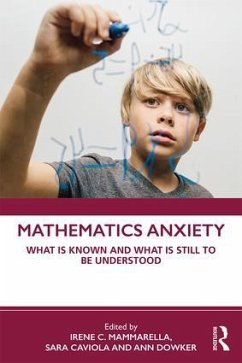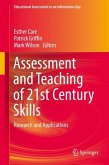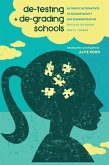Feelings of apprehension and fear brought on by mathematical performance can affect correct mathematical application and can influence the achievement and future paths of individuals affected by it. In recent years, math anxiety has become a subject of increasing interest both in educational and clinical settings. This ground-breaking collection presents theoretical, educational and psychophysiological perspectives on the widespread phenomenon of mathematics anxiety.
Featuring contributions from leading international researchers, Mathematics Anxiety challenges preconceptions and clarifies several crucial areas of research, such as the distinction between math anxiety from other forms of anxiety (i.e., general or test anxiety); the ways in which math anxiety has been assessed (e.g., throughout self-report questionnaires or psychophysiological measures); the need to clarify the direction of the relationship between math anxiety and mathematics achievement (which causes which).
Offering a re-evaluation of the negative connotations usually associated with math anxiety and prompting avenues for future research, this book will be invaluable to academics and students in the psychological and educational sciences, as well as teachers working with students who are struggling with math anxiety.
Hinweis: Dieser Artikel kann nur an eine deutsche Lieferadresse ausgeliefert werden.
Featuring contributions from leading international researchers, Mathematics Anxiety challenges preconceptions and clarifies several crucial areas of research, such as the distinction between math anxiety from other forms of anxiety (i.e., general or test anxiety); the ways in which math anxiety has been assessed (e.g., throughout self-report questionnaires or psychophysiological measures); the need to clarify the direction of the relationship between math anxiety and mathematics achievement (which causes which).
Offering a re-evaluation of the negative connotations usually associated with math anxiety and prompting avenues for future research, this book will be invaluable to academics and students in the psychological and educational sciences, as well as teachers working with students who are struggling with math anxiety.
Hinweis: Dieser Artikel kann nur an eine deutsche Lieferadresse ausgeliefert werden.








